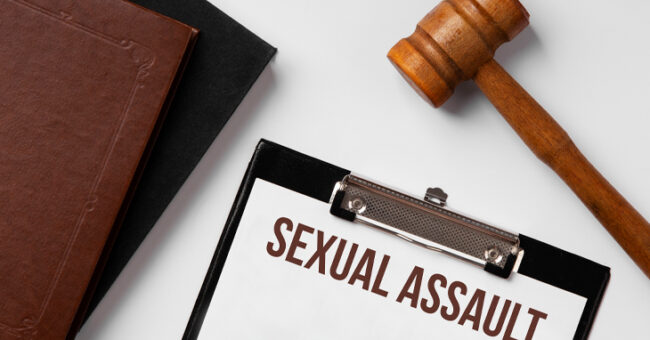

Consent is the foundation of any sexual assault case in Canada. Without clear and voluntary consent, sexual activity becomes a criminal offence under Canadian law. Understanding how consent is legally defined and interpreted is crucial for anyone accused of sexual assault.
Courts in Canada treat these allegations with extreme seriousness, often leading to significant legal penalties and life-altering consequences.
Sexual assault lawyers play a critical role in defending individuals facing such charges. A strong defence often hinges on navigating complex consent laws and challenging the Crown’s evidence effectively.
This blog will explain what consent means under Canadian criminal law, when it is considered invalid, and how it impacts the defence strategy in sexual assault cases.
What Is Consent Under Canadian Law?
Consent is legally defined under Section 273.1(1) of the Criminal Code of Canada as “the voluntary agreement of the complainant to engage in the sexual activity in question.” Consent must meet several strict conditions to be valid:
- It must be voluntary and given freely.
- It must be specific to the sexual act.
- It must be continuous and can be withdrawn at any time.
- It must be informed, meaning the complainant understands the nature of the activity.
Canadian law is clear: silence or lack of resistance does not equal consent. Affirmative communication, either through words or clear conduct, is necessary.
When Consent Is Not Valid In Canada
Under Section 273.1(2) of the Criminal Code, consent is not valid if:
- It is obtained through force, threats, or fear.
- It results from fraud or deception.
- It is secured through the abuse of authority or trust.
- The complainant is incapable of consenting, such as being unconscious or heavily intoxicated.
- The complainant expresses non-consent or withdraws consent during the activity.
A crucial case, R v Ewanchuk, (1999) 1 S.C.R. 330, reinforced the principle that there is no implied consent under Canadian law. Only clear, affirmative consent counts; anything short of that is legally insufficient.
Consent Defence In Sexual Assault Cases
Consent often becomes the central issue in defending against sexual assault allegations. Sexual assault lawyers typically use two main strategies:
Actual Consent Was Given
The defence may argue that the complainant voluntarily agreed to the activity. Evidence supporting this defence might include:
- Text messages or chats before and after the incident.
- Witness testimonies about interactions.
- Physical evidence suggests a consensual encounter.
Honest But Mistaken Belief In Consent
Another defence available under Section 273.2 of the Criminal Code is the honest but mistaken belief in consent. However, this defence is heavily restricted:
- The accused’s belief must be honest and reasonable.
- The belief must be based on the complainant’s words or actions.
- The accused cannot rely on silence, passivity, or stereotypical assumptions.
The Supreme Court’s decision in R v Ewanchuk eliminated reliance on ‘implied consent,’ requiring all defendants to base their belief on active, affirmative communication.
How Courts Evaluate Consent Evidence
Canadian courts assess consent issues with extreme attention to detail. Judges and juries examine:
- The credibility of the complainant and the accused.
- The consistency of statements given to police and during the trial.
- Physical evidence, such as forensic findings or injury reports.
- The complainant’s behaviour before, during, and after the incident.
Importantly, the complainant’s prior sexual history is protected under Section 276 of the Criminal Code. Known as the rape shield law, this provision restricts the defence from introducing irrelevant past sexual behaviour unless specifically permitted by the court.
The courts are guided by the principle that consent must be clear and voluntary at every stage. Doubts about consent must be resolved in favour of the accused if they raise a reasonable doubt in the judge or jury’s mind.
Important Cases On Consent In Canada
R v Ewanchuk (1999)
This landmark case established that consent must be explicit and cannot be implied through silence or lack of resistance. The Supreme Court ruled that a genuine, voluntary agreement is essential, and anything less is not consent.
Impact: Affirmed that the accused cannot rely on assumptions about consent based on body language or previous interactions.
R v J.A. (2011)
In this decision, the Supreme Court clarified that a person cannot legally consent to sexual activity while unconscious. Advance consent while unconscious is invalid because consent must be present and ongoing during the act itself.
Impact: Reinforced the importance of conscious, voluntary, and contemporaneous consent throughout the encounter.
Why You Need A Sexual Assault Lawyer
Facing a sexual assault charge without proper legal representation can have devastating consequences. Sexual assault lawyers bring critical skills and experience to your defence, including:
- Challenging the Crown’s evidence and the credibility of witnesses.
- Arguing consent effectively within strict legal guidelines.
- Preparing you for testimony and cross-examination.
- Protecting your rights against improper procedures and prejudicial evidence.
Early legal intervention by experienced sexual assault lawyers often leads to better outcomes, whether through negotiated withdrawals, reduced charges, or trial acquittals. Given the seriousness of sexual assault penalties in Canada, including prison time and mandatory registration as a sex offender, professional legal help is not optional; it is essential.
About Slaferek Law
Slaferek Law is a dedicated criminal defence law firm based in Edmonton, Alberta. Focused exclusively on criminal defence, the firm offers experienced, strategic representation for individuals facing serious criminal charges. With a commitment to protecting clients’ rights at every stage, Slaferek Law brings personalised attention and aggressive advocacy to complex cases, including sexual assault, assault offences, fraud, and other criminal charges.
Facing sexual assault charges? Contact us today for a confidential consultation and expert defence advice.
The post Consent And Its Role In Sexual Assault Cases In Canada appeared first on Slaferek Law.